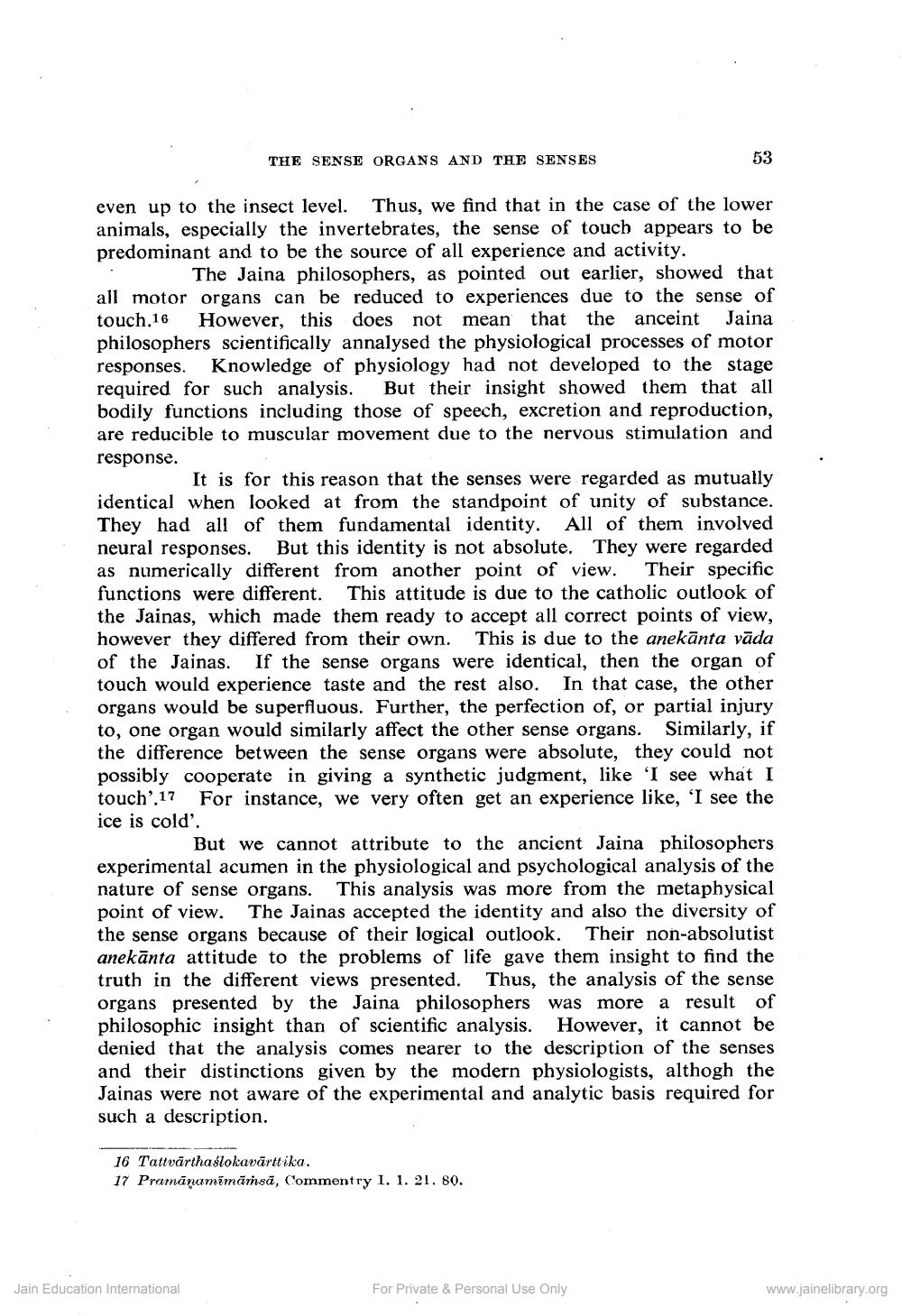________________
response.
THE SENSE ORGANS AND THE SENSES
even up to the insect level. Thus, we find that in the case of the lower animals, especially the invertebrates, the sense of touch appears to be predominant and to be the source of all experience and activity.
The Jaina philosophers, as pointed out earlier, showed that all motor organs can be reduced to experiences due to the sense of touch.16 However, this does not mean that the anceint Jaina philosophers scientifically annalysed the physiological processes of motor responses. Knowledge of physiology had not developed to the stage required for such analysis. But their insight showed them that all bodily functions including those of speech, excretion and reproduction, are reducible to muscular movement due to the nervous stimulation and
It is for this reason that the senses were regarded as mutually identical when looked at from the standpoint of unity of substance. They had all of them fundamental identity. All of them involved neural responses. But this identity is not absolute. They were regarded as numerically different from another point of view. Their specific functions were different. This attitude is due to the catholic outlook of the Jainas, which made them ready to accept all correct points of view, however they differed from their own. This is due to the anekānta vāda of the Jainas. If the sense organs were identical, then the organ of touch would experience taste and the rest also. In that case, the other organs would be superfluous. Further, the perfection of, or partial injury to, one organ would similarly affect the other sense organs. Similarly, if the difference between the sense organs were absolute, they could not possibly cooperate in giving a synthetic judgment, like 'I see what I touch'.17 For instance, we very often get an experience like, 'I see the ice is cold'.
53
But we cannot attribute to the ancient Jaina philosophers experimental acumen in the physiological and psychological analysis of the nature of sense organs. This analysis was more from the metaphysical point of view. The Jainas accepted the identity and also the diversity of the sense organs because of their logical outlook. Their non-absolutist anekānta attitude to the problems of life gave them insight to find the truth in the different views presented. Thus, the analysis of the sense organs presented by the Jaina philosophers was more a result of philosophic insight than of scientific analysis. However, it cannot be denied that the analysis comes nearer to the description of the senses and their distinctions given by the modern physiologists, althogh the Jainas were not aware of the experimental and analytic basis required for such a description.
16 Tattvarthaslokavārttika.
17 Pramanamimämsä, Commentry 1. 1. 21. 80.
Jain Education International
For Private & Personal Use Only
www.jainelibrary.org




